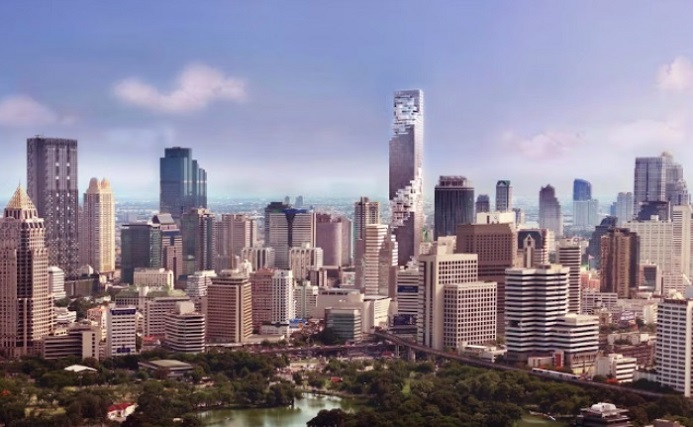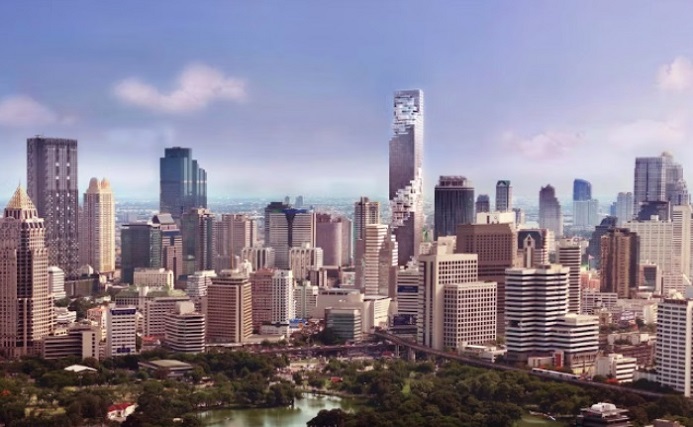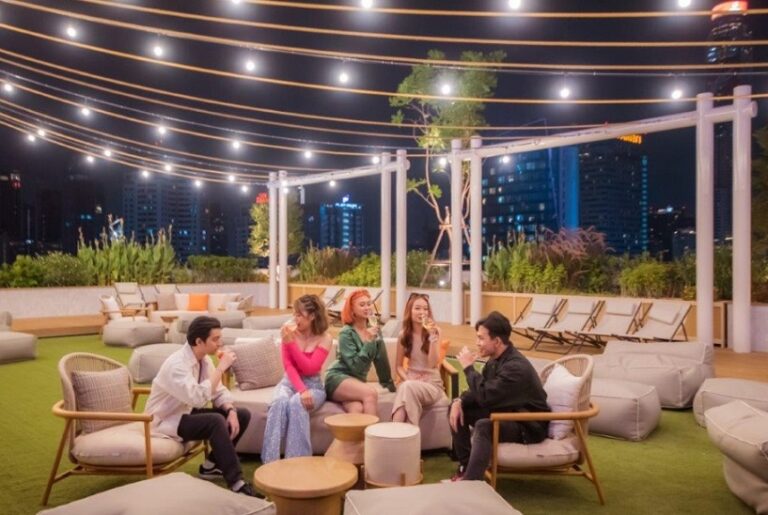
Hotel News: The Asia’s hotel investment market is experiencing a powerful resurgence in 2025, defying global economic turbulence and attracting billions in capital despite inflationary pressures and tightening financial conditions worldwide. A combination of rising tourism especially travels within the region, limited new hotel supply, and evolving traveler preferences is fueling this boom, with key players expecting sustained momentum well into 2026 and 2027.

Hotel transactions across the Asia Pacific region soared to a staggering US$12 billion in 2024, marking a 3.3 percent increase from the previous year, according to Nihat Ercan, CEO of JLL Hotels & Hospitality Group for Asia Pacific. The number may only hint at deeper structural shifts that are reinforcing the region’s resilience. From the glitzy skyscraper hotels of Singapore to boutique hospitality spaces in Japan and Vietnam, investors are scrambling to secure deals amid robust revenue per available room (RevPAR) growth and increasing tourist flows. This Hotel News report explores the many forces reshaping Asia’s hospitality industry and what lies ahead.
A Surge in Demand as Supply Slows Down
Unlike other global markets, Asia’s hospitality sector enjoys a unique buffer—supply constraints. Developers are struggling with elevated construction costs and restricted access to financing, which has led to a slowdown in new projects. As demand outpaces supply, hotels are experiencing a golden period of increased occupancy and higher average daily rates (ADR).
According to Ercan, JLL is witnessing high investment activity despite global economic jitters. “We’re actively calling for bids across the region,” he said. “In just the past two weeks, we’ve exchanged contracts on two boutique hotels in Singapore, launched bids for a major hotel in Sydney, and received offers for another hotel in Melbourne.”
He added that investors are shifting away from volatile public markets toward hard assets like real estate, especially hotels, which can provide stable long-term income. “It’s about diversification and protection against economic shocks,” Ercan said. JLL, which has brokered over $80 billion in hotel assets globally over the past six years, views the current Asia Pacific landscape as one of the most promising.
China’s Re-Entry and Visa-Free Travel Fueling Recovery
The hotel sector’s buoyancy is largely underpinned by a revival in international travel. Asia Pacific welcomed 316 million international arrivals in 2024, only 13 percent below pre-pandemic levels. Much of this growth is attributed to relaxed visa regulations and the re-engagement of Chinese tourists.
“The Chinese are back,” said Ercan. “They now represent 19 percent of total arrivals in Singapore, surpassing both Indonesia and India. They have also regained the top source market status in the Maldives, accounting for 13 percent of visitors.”
Despite the ongoing tariff war initiated by the United States, the travel industry within Asia does not seem to be badly affected, in fact there is a rise in business travel to and within Asia by business travelers affected by the American tariffs as many are now exploring newer and friendly markets.
Such strong numbers are likely to provide a consistent stream of revenue for hotels across the region. The demand for more experiential stays, branded residences, and lifestyle-focused accommodations is also rising. Guests are no longer looking for just a place to sleep—they want an immersive experience filled with local flavor, cultural narratives, and personalized services.
The Rise of Events and Destination-Driven Travel
Events-led tourism is another key driver of hotel performance in Asia. The region is seeing massive demand spikes during high-profile events such as Taylor Swift’s sold-out concerts in Singapore and the record-breaking Melbourne Grand Prix. These destination events are proving to be game changers for local hotels, pushing occupancy to near capacity and spurring last-minute premium bookings.
Singapore stands out for its strategic approach. With robust infrastructure and a well-coordinated tourism board, the city-state has cemented its place as an events capital. “Formula 1, Taylor Swift, and the upcoming Lady Gaga concert are all examples of how events can be leveraged to drive tourism,” said Ercan. “Singapore’s hotel ecosystem is ready to meet the surging demand during such events.”
Additionally, a weaker yen has made Japan more attractive to international travelers, helping boost inbound numbers and prolonging hotel stays, particularly in cities like Tokyo and Osaka.
Hotels Getting Smarter but Human-Centric
With the hospitality sector facing severe staffing challenges—especially in front office and food and beverage positions—hotels are turning to technology to fill the gap. JLL’s operator survey, encompassing over 1,000 hotel properties across Asia Pacific, highlighted major hurdles in hiring, particularly in Southeast Asia, Greater China, and Australasia.
To counter this, many hotels are integrating AI tools such as smart room automation, app-based check-ins, and cloud-based task management. Yet, despite the push for automation, Ercan emphasized the need to preserve the human touch. “This is a service business,” he said. “Technology should complement—not replace—the human experience.”
Hotels are also repurposing underutilized spaces such as conference rooms into pop-up retail or co-working zones. Outsourcing high-end F&B offerings to celebrated local chefs is becoming a common strategy to boost local engagement and create memorable guest experiences.
Country-by-Country Outlook Reveals Diverse Opportunities
Recent insights from the Hotel Investment Conference Asia Pacific (HICAP) webinar painted a mixed but generally positive picture of Asia’s hotel sector:
Japan continues to thrive as both a leisure and business destination. Tokyo posted the highest Gross Operating Profit Per Available Room (GOPPAR) among top APAC cities, although rising labor costs threaten to erode margins.
Singapore, despite its premium image, witnessed a dip in ADR in 2024. However, its healthy occupancy and event-driven tourism keep its hotels in high demand.
Vietnam is seeing an impressive comeback, with high occupancy and ADR growth driven by luxury hotel openings and strong domestic demand.
China faces temporary setbacks due to hotel oversupply, weaker consumer spending, and a surge in outbound travel. This has led to falling ADR and occupancy, but industry experts believe China’s vast internal market will stabilize over time.
Thailand, Malaysia, and Indonesia are booming, thanks to relaxed visa policies, improved air connectivity, and strong demand for upper mid-scale accommodations.
Asia’s Strategic Transformation Amid Global Shifts
Banyan Tree Holdings Chairman Ho Kwon Ping believes Asia is undergoing a civilization-level reset in terms of global economic dominance. Ho remarked that although China is currently facing short-term setbacks, its long-term position remains unshakable.
“In five office buildings in a Chinese city’s central business district, all were recently converted into hotels to meet domestic demand,” he said. “That speaks volumes about the transformation and adaptability of China’s real estate and hospitality sectors.”
Japan’s continued success, he added, lies in its affordability and reliability as a tourist destination. More broadly, Ho stressed the importance of unity among Asian nations to collectively adapt and unlock the region’s full hospitality potential.
Echoing these sentiments, H. Roger Wang, chairman of Golden Eagle International Group, underlined the necessity of strategic flexibility. He noted that Golden Eagle’s extensive outsourcing—80 percent of its operations—has slashed payroll costs by half, giving the company a significant edge in a volatile market.
Outlook Points Toward Growth With Eyes on Innovation
Despite global headwinds—from inflation to geopolitical tensions—Asia’s hospitality sector is entering a transformative growth phase. Travelers are returning in droves, investors are bullish on hotel assets, and the region is redefining what it means to offer hospitality in the 21st century.
Hotel developers and operators across Asia are learning to ride the wave of change by prioritizing guest experience, optimizing operational costs, embracing technology, and repositioning assets in response to evolving traveler behavior. Strategic government policies, such as relaxed visa norms and support for mega-events, are further enhancing each country’s competitiveness in attracting global visitors.
Industry leaders agree that the long-term outlook remains bright, even if individual markets experience temporary dips or volatility. Investors with a long-view mindset will likely be rewarded as Asia continues to solidify its position as the world’s next great hotel frontier. The lessons from 2024 make it clear: adaptability, innovation, and regional cooperation are key to unlocking Asia’s vast potential.
For the latest Hotel News, keep on logging to Bangkok Hotel News.
You May Also Like:
Hotels Go All in on Wellness and Digital Detox Travel Trends as Guests Seek Healing and Human Touch







